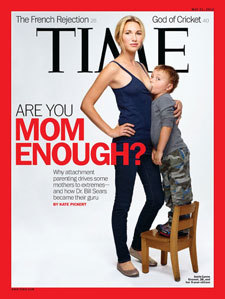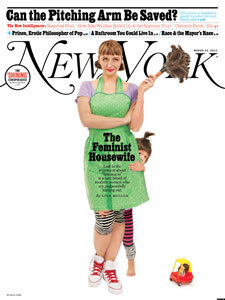
Beyoncé's new album arrived with no prior hype or marketing a few days ago and it only took a few seconds before the maniacal media scramble began. Part of the excitement was about the precise marketing strategy: In a world where one tweet or one instagram can turn you into an instant celebrity, a mega-star like Beyoncé had her album become No. 1 in 90 countries overnight without the problems of leaks that marketing strategies often give rise to. But there was another component to the hype: the somewhat stale debate about Beyoncé's feminism had found yet another iteration. One of the tracks, "Pretty Hurts" showed a gorgeously styled Beyoncé sing about body-image issues in the entertainment industry and yet another "Flawless," featured passages from Nigerian novelist Chimamanda Ngozi Adichie's TED talk, which was titled "We Should All Be Feminists."
As 2013 comes to an end, this is the icing on the cake for a year in which lucrative, mainstream, corporate, capitalist and celebrity feminism has twerked its way to relentless media exposure.
 Maybe the frenzy around feminism began in 2012 with the planets aligning to give to the world the bougie-nudey travails of Lena Dunham's Girls; Time's provocative breastfeeding cover asking "Are You Mom Enough?" followed by foreign policy expert Anne-Marie Slaughter's sudden turn to gender issues with the most widely-read and exhaustively-shared article, "Why Women Still Can't Have It All." Blogs were spun on every minutiae, social media around this knew no bounds and women-focused pages suddenly appeared on magazines that had not really bothered with all this before. I remember thinking that there was something positive in all this, and that the mainstream attention to gender and feminism issues could mean a step forward. I could not have been more wrong.
Maybe the frenzy around feminism began in 2012 with the planets aligning to give to the world the bougie-nudey travails of Lena Dunham's Girls; Time's provocative breastfeeding cover asking "Are You Mom Enough?" followed by foreign policy expert Anne-Marie Slaughter's sudden turn to gender issues with the most widely-read and exhaustively-shared article, "Why Women Still Can't Have It All." Blogs were spun on every minutiae, social media around this knew no bounds and women-focused pages suddenly appeared on magazines that had not really bothered with all this before. I remember thinking that there was something positive in all this, and that the mainstream attention to gender and feminism issues could mean a step forward. I could not have been more wrong.
This year we have seen the outpouring that began last year multiply. Sheryl Sandberg's memoir/self-help mantra Lean In: Women, Work and the Will to Lead debuted to phenomenal success. bell hooks, a revered feminist scholar who has published no less than 30 books on the subject was distraught and alarmed at the idea that feminist theory, advocacy and practice, which have been consistently marginalized by mass media and often relegated to an academic sub-culture, had now suddenly found a "new high priestess of feminist movement" in Sandberg. With its primarily white and corporate preoccupations, hooks found that the book does not offer anything by way of progressive thinking around the complex categories of "women" or "gender," nor does it promote any kind of solidarity between women. As hooks points out, it is Sandberg's personal anecdotes, cutesy commentary on the feminist movement and self-presentation in "deep V-necks and stiletto heels" that promote feminine vulnerability, along with an intensive advertising strategy makes her "brand" palatable and enjoyable.
While much liberal ink was spilt on the hypocrisy of Sarah Palin's feminism during her vice-presidential campaign, it seems odd that the same media is blind to the exact folksy, semi-sexy, light-hearted approach that Sandberg plays as her main card. Furthermore, this brand of feminism only works for successful, attractive, employed women who are, arguably, already benefactors of the real milestones that feminists have already achieved, but who refuse to embrace and promote that particular history.
 Time featured Sandberg on its cover with the title, "Don't Hate Her Because She's Successful: Facebook's Sheryl Sandberg And Her Mission to Reboot Feminism." And there were more women-centric topics that made the cover of Time this past year. "The Childfree Life: When Having It All Means Not Having Children" regurgitated some of the same debates. As Emily Shire observed, the author forgot to actually include men in this conversation, relegating all aspects of maternity and childrearing to women, and thus actually reinforcing traditional thinking around this issue. Shire also criticized the cover which, perhaps intentionally provocative, belied the sensitivity being shown to the subject by portraying a heterosexual couple lounging lazily in swimsuits. The childfree life, it seemed to say, was only a domain of yuppies, leaving out a class of people who perhaps made these choices due to socioeconomic reasons.
Time featured Sandberg on its cover with the title, "Don't Hate Her Because She's Successful: Facebook's Sheryl Sandberg And Her Mission to Reboot Feminism." And there were more women-centric topics that made the cover of Time this past year. "The Childfree Life: When Having It All Means Not Having Children" regurgitated some of the same debates. As Emily Shire observed, the author forgot to actually include men in this conversation, relegating all aspects of maternity and childrearing to women, and thus actually reinforcing traditional thinking around this issue. Shire also criticized the cover which, perhaps intentionally provocative, belied the sensitivity being shown to the subject by portraying a heterosexual couple lounging lazily in swimsuits. The childfree life, it seemed to say, was only a domain of yuppies, leaving out a class of people who perhaps made these choices due to socioeconomic reasons.
New York Magazine was not far behind, making a splash in March with Lisa Miller's "The Retro Wife," with its tagline echoing the same preoccupations: "Feminists who say they're having it all -- by choosing to stay home." Focusing only on narratives in which married, heterosexual women are making domestic life their choice, Miller completely bypassed the population of mothers who do not have the luxury to not work simply out of economic concerns or because they run single-parent households -- or because they might belong to a two-mother household. In the article, women recounted the dilemmas of their work-home balance and how they thus opted to become full-time mothers. Miller starts off with a promising line: "Feminism has fizzled, its promise only half-fulfilled." Instead of laying bare the deeply ingrained issues in the American workplace and welfare systems that makes work and motherhood an impossible strain on women, the author chooses to zoom in on 'maternal instinct' as the main factor in these decisions, a particularly regressive category that has been the driving force of fundamentalist religious doctrines and quite easily continues to enable most of the sexism in our world today.
Similarly privileged narratives of white heteronormative feminism were on view all year long. The Atlantic's "Sexes" column continued to chip away at the actual feminist movement with a wide array of articles and blogs. Anne-Marie Slaughter wrote a prolific 14 pieces in the wake of her famous article about women, but her more serious pieces were balanced out with pabulum from other contributors such as, "It's Frustratingly Rare to Find a Novel About Women That's Not About Love." Good grief. Really? Have you tried a Virginia Woolf novel, or maybe a Toni Morrison? Other gems included "Yes Men Should Do Housework"; "A Brief History of Sexting"; and "Hong Kong's Troubling Shortage of Men.''
The most perturbing issue here is of celebrity-driven feminism, or what I see as the "reluctant feminism" that emerges from it. For example, Sandberg explains that she was never an advocate of feminism herself, and in college "if anyone had called me a feminist I would have quickly corrected that notion..." She eventually revised her views when she brushed shoulders with male-dominated corporate USA.
Beyoncé tops of the list of the most reluctant feminists. As a woman of color criticizing Beyoncé in the past, I have been repeatedly bludgeoned and put in my place in Facebook-ville. There exists a gaping blind spot where she is concerned, and there is a kind of unspoken oath among even the most intelligent women that her on-again, off-again relationship with feminism must be treated like a sacred anthem. That this is a tenacious, ridiculously beautiful, supremely talented and extraordinary black woman is not even up for debate. It is what she means as a role model for girls and women that should not be taken at face value.
Some years ago I taught writing at a two-year college in the Bronx in a program tailored specifically for mothers on welfare. There are no words to express the ways in which these women were financially, psychologically and emotionally burdened. We spent a lot of time crafting writing assignments on current issues, and lot of these involved popular culture. Mothers in the class who had young daughters had serious gripes with their little girls' obsession with looking like Beyoncé: They wanted the hair, the nails, the shiny outfits -- they wanted to be "divas." Most of Beyoncé's seemingly subversive messages of being bootylicious or independent or ruling the world really filtered down to looking hot doing it. I remember feeling a kind of shame then at how flippantly I consumed popular culture. The messages being sent by iconic but commodity-driven shows like Sex and the City or seemingly empowering pop stars like Beyoncé suddenly became startlingly clear.
Maybe Beyoncé has the best of intentions, but her stardom and mega-celebrity is driven by instilling in her audience the most primal consumerist drive. Her heteronormative anthem "Single Ladies," devoted as it is to aspiring to marriage, is not necessarily inspirational unless you acquire "gloss on your lips," "Dereon jeans," and of course that ubiquitous and absurd love object "the ring." Even one of her older tough songs, "Ring the Alarm" is essentially a long list of things that are at stake if another woman gets the man in question; from chinchilla coats to the house off the coast to VVS stones.
Her new album, with all its two supposedly feminist tracks was immediately written about by Jezebel, a witty website devoted to tripping up celebrities. Her "visual album," they claimed, had about 48 costume changes and a "lot of thonged ass." But what this really reveals is that her possibly inspirational messages are constantly obfuscated by a sort of blinding aesthetic extravaganza.
A particularly irritating aspect of Beyoncé's hyper-sexy avatar is the good-girl persona and almost religious respectability that it is predicated on. She is an adored wife, a doting mother and a pious daughter. She is not offering up a subversive message on female promiscuity, nor reflecting on the category of "slut" that has damned women for centuries, nor using her body as a site for activistic agendas. She is naughty within the socially accepted, traditional confines of the institutions of marriage and motherhood.
Sure, I wish I had her face, her body, those clothes -- and I am certainly addicted to her catchy tunes, but its time to stop implicating her in agendas that she is not necessarily thinking too deeply about and that she remains inconsistent on.
Feminism-Lite!
Not all of the developments of the past two years are shallow. The opening up of this space enabled some of the more challenging issues of gender, sexuality and activism to find a little airtime. The problem is that feminism is big business now. Just think of the industry of hits, tweets, Facebook posts and advertising around these articles and their spinoffs. And in the case of Time, the actual paywall.
Most would argue that this is a good thing and that it is high time these issues got the big media attention that they deserve. But it is really not a productive debate if the terms of the debate are completely false. If this were a discussion on anti-Semitism or racism of any kind for that matter, we would not accept shallow and misleading terms as a starting point for the debate nor reject historical contexts. When someone starts a sentence with "I'm not a racist but..." how seriously do we take their point of view? Why should feminism then get the analytical short shrift?
Stamping out the ugly face of defiant, fierce, trailblazing and vociferous feminism of the past, celebrity culture is now offering us Feminism-Lite! Have a sip, zero calories, issue-free -- not too threatening, not too political and you still get to keep your man!
Thanks to Laxmi Vijaysankar and Tibita Kaneene for many invaluable analyses.
Bhakti Shringarpure is the editor-in-chief of Warscapes magazine and an Assistant Professor of literature at the University of Connecticut.

